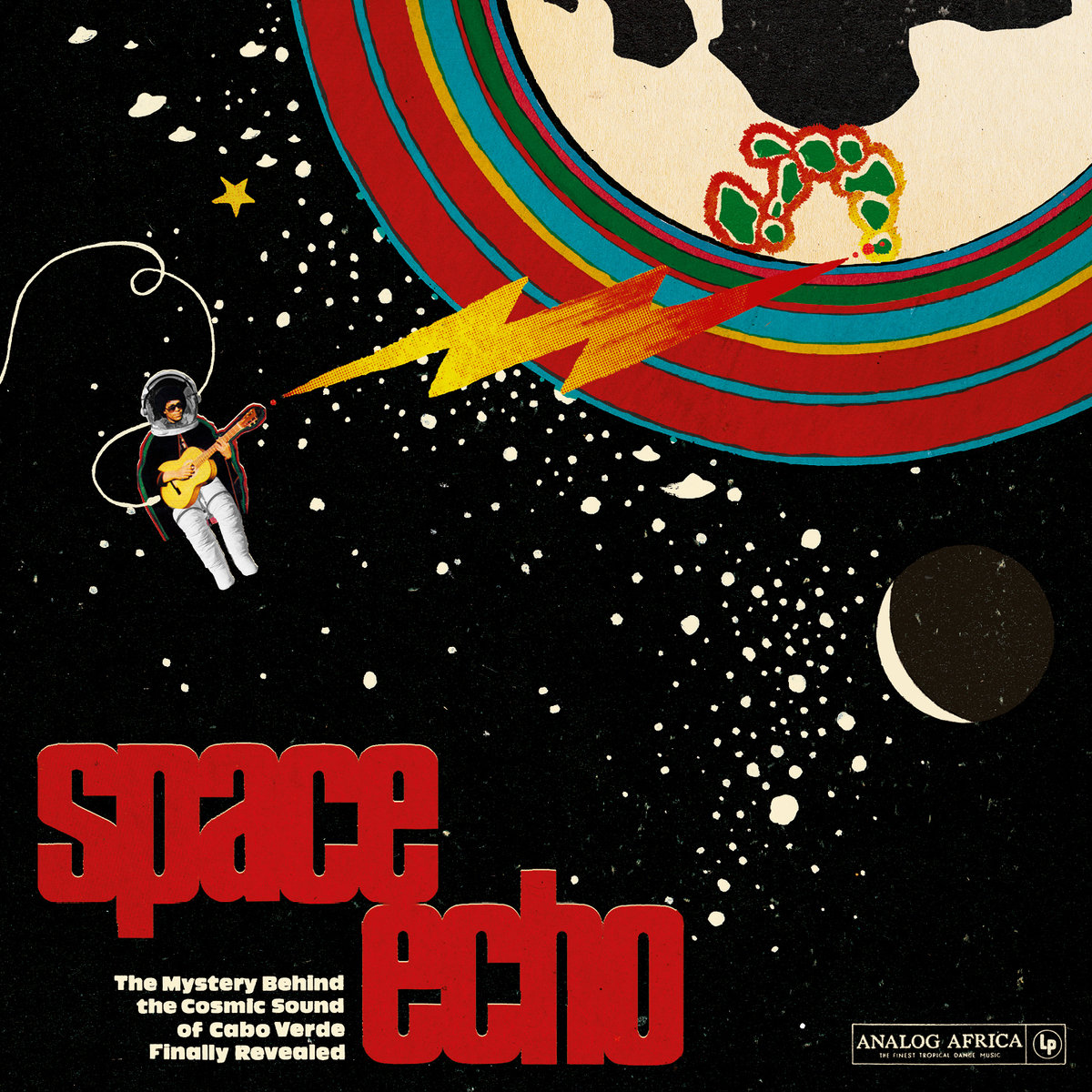What is it: More that just synthesiser music from Cape Verde.
What does it sound like: A variable cornucopia of styles coming together in the wake of oceanic mystery.
Why is it our album of the week: You’ll have to read further to find out…
Ok, it’s technically not an album, but Space Echo’s narrative reads like an album, especially when you familiarise yourself with the story of this music, conveniently written up in the booklet that comes with the gatefold LP. The story begins with a shipment of synthesisers heading to an expo in Rio, which disappeares at sea. It turns up a few months later 8km inland on the Sao Nicolau Island of Cape Verde, to the surprise of the locals and the Portuguese scientist, who declared it must of fell from the sky. The bow of the ship had traces of extreme heat, similar to traces found on meteors and one conclusion was that it fell from space, so it was only natural that the music which would eventually arise from this cosmic incident would be classed as such.
After distributing the instruments amongst the locals and with electricity finally coming to the island, a third generation of musician would emerge calling on a host of influences, sounds, genres and styles that only an island colonised by the Portuguese off the coast of West Africa as a slave port could produce. Not exactly pure synthesiser music, Space Echo features a kind of West African big band at the centre of it with a “formidable rhythm section” and of course a synth wizard named Toy Viera noodling away at some of those synths distributed by the village elders. The band was called “Voz de Cabo Verde” (the voice of Cape Verde if it wasn’t obvious) and feature as backing band on eight of the tracks on this compilation. The tracks contain elements cosmic collage of some of the funkiest and spaciest music we’ve ever encountered from the region.
Thanks to the recent efforts of labels like Analog Africa, who uncovered this almost forgotten music of Cape Verde in some Lisbon studio, we are finally being exposed to this music that would’ve been very nearly lost as little more than colonialist trinkets. Not for curiosity value, but for the intrinsic value of the music itself.

